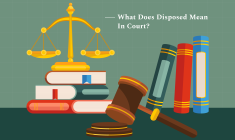Business disputes can quickly disrupt operations, strain partnerships, and lead to costly legal battles. The right legal strategy is crucial, whether it’s a contract disagreement, shareholder conflict, or commercial litigation.
Serving businesses across the U.S., DMR Law is dedicated to helping companies navigate complex legal challenges with a results-driven approach.
Legal representatives focus on resolving disputes efficiently, minimizing risks, and protecting your business interests. Their team provides clear, practical guidance tailored to your situation, ensuring you have the legal support to move forward confidently.
They work closely with their clients to explore negotiation, mediation, and litigation strategies that align with their goals.
Whether you’re facing an internal partnership dispute or an external commercial conflict, their experienced attorneys are committed to finding practical solutions to safeguard your company’s future.
By familiarizing themselves with the strategies available to them, businesses can overcome these challenges and ensure productive working relationships remain intact.
If you have been trying to figure out how to resolve business disputes, you have come to the right place. So, keep on reading till the end to learn more…
Business Disputes: How Can You Resolve Commercial Litigation?
Business disputes are very common in the corporate and commercial world. However, what a lot of people do not realize is the fact that these disputes can also cause legal issues.
For instance, you must have heard about businesses or employees going through legal trouble of contract breach. Apart from this, fraud and violation of regulations are also common business disputes that lead to corporate cases and litigation.
These issues can have a lasting impact when it comes to the reputation of the company. It can also be a problem when it comes to dealing with financial losses.
Identifying the Root Cause
Identify the real problem to address before even approaching a dispute. Most conflicts arise due to a lack of communication, expectations, etc.
When your lawyer can pinpoint the source of the discord, they can deal with the issue head-on, and because of that, parties can often reach a kinder resolution.
Open Lines of Communication
Next on the list of the things that you need to do when it comes to resolving business disputes is keeping the lines of communication open.
Why? Well, this can help settle differences of opinion. Promoting dialogue between the disputing parties may help clear misconceptions and encourage collaboration.
Through open conversations, parties can voice their worries and develop solutions for both sides.
Mediation as a First Step
Mediation is a beneficial first step in resolving business disputes. In mediation, an impartial third party acts as a facilitator, helping disputants communicate with each other.
Both sides can air grievances during mediation, and potential solutions are explored in an approachable environment.
Many people appreciate this method since it is more about collaboration and consensus.
Exploring Arbitration
If mediation doesn’t work, then arbitration might be a solution. The process involves an arbitrator who hears both sides and issues a binding ruling.
While arbitration is more structured than mediation, it is still less adversarial than a trial. Amongst many companies, arbitration is seen as an economical and time-saving method.
Drafting Clear Contracts
A good contract can help prevent a dispute from arising. Use plain language, avoid jargon, and define key terms and expectations upfront so everyone can hit the ground running for a successful partnership.
Businesses should strive to draft contracts to delineate roles, responsibilities, and processes for dealing with potential disputes. Being proactive will ultimately help save time and money.
Focusing on Lasting Relationships
While it is good not to lose sight of long-term relationships, parties should consider preserving such relationships regarding actual disputes.
Solutions should be based so things don’t get too heated and can prevent it from spiraling into the next quarrel. Goodwill and respect for each other usually result in better partnerships.
Additional Steps to Resolve Business Disputes and Litigation
Understanding legal rights and obligations is essential for effectively navigating disputes.
Businesses must ensure they know any applicable laws and regulations governing the relationship.
Legal experts can offer great insights and, thus, ensure conformity to the standards you are obligated to follow.
Seeking Expert Advice
Business professionals will give you insight on how to resolve a dispute. Experienced commercial dispute lawyers can assist in partnership disputes and provide case-specific advice. Their thoughts can help companies share smart decisions while dealing with complicated issues.
Leveraging Technology
There are many technological tools out there to help with dispute resolution. A discussion on paperwork is made easier through online platforms and digital communication tools.
These resources allow parties to connect even if they are far away from each other. Technology is needed to resolve conflict and make the entire experience seamless.
Assessing Alternative Solutions
It can be helpful to explore alternatives for dispute resolution. Innovative solutions that balance the needs of all sides often emerge through creative thinking and flexibility.
This consideration leads businesses to explore various options for solutions, enabling them to find solutions that best align with their goals and values.
Documentation of Dispute Resolution Efforts
A thorough record of the business dispute needs to be fully documented during the resolution process.
Documenting negotiations, agreements, and communications helps ensure transparency and accountability.
If problems arise late, documentation helps create an even more precise reference point for all parties involved.
Your Legal Guide: Resolve Business Disputes
Business disputes are complex and often require a strategic approach from both sides. Businesses can easily handle any conflict with transparent dialogue and by seeking knowledgeable counsel about legal rights.
This leads to a positive outcome and builds collaborations. In the end, such strategies enable organizations to become successful amid the changing tides of the business world.
Every argument is a chance to grow and learn. When looking back at past conflicts, businesses should see where they went wrong and take the necessary measures to prevent them from happening again.In conclusion, organizations can refine their dispute resolution over time by analyzing successes and failures.
Read Also:
















